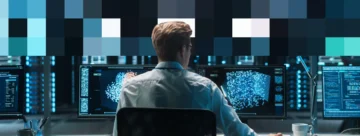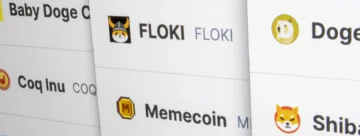How Web3 Technologies Affect the Development of the Gaming Industry

Let’s look at the economic and technological benefits that Web3 technology brings to the gaming industry.
Web3 and the New In-Game Economy

First of all, Web3 technologies affected the economic models of games, providing more monetization opportunities and creating an entire sector known as GameFi. Developers can now generate unique and valuable in-game items as NFTs, which players can buy, sell, and use beyond the gaming world.
Smart contracts and blockchain also make it possible to create decentralized game economies, where players have full control over their digital assets and can exchange them without intermediaries.
Web3 technologies allow users to actively participate in the development of games. Gamers can design their own content, participate in voting on new features and game changes, and receive rewards for their contribution to the development of the project.
The adoption of Web3 technology also enhances economic ties between games, enabling the creation of gaming ecosystems where digital assets and data can move between different projects and platforms.
Simply put, smart contracts and blockchain present a range of innovative opportunities for game creators and players:
- Selling and trading digital assets. NFT technologies help create collectible in-game artifacts that can have high value in the secondary market.
- Project financing. Crowdfunding platforms and initial coin offering campaigns allow developers to raise funds from investors by offering them digital assets as rewards.
- Participation of players in the development of projects. Users receive a chance to influence game project development by participating in DAO voting or participating in the joint development of new functionality. This approach greatly improves the involvement of gamers and, therefore, the popularity of such projects.
- Rewards for gaming activity. Players can get tokens for achievements, in-game progress, or active participation in the community.
We previously covered earning mechanics using some of the most popular P2E projects as an example.
Web3 and Improving the Gaming Experience

Web3 also made significant changes to the gaming experience, offering improved features and capabilities for players:
- Transparency and security. Blockchain makes features such as transaction history and asset ownership available for inspection and unchangeable. This builds trust between players and developers and improves the security of the gaming ecosystem.
- Progress portability. Players can save their achievements and continue playing on different devices or platforms, providing a more flexible and continuous gaming experience.
- Integration with other technologies. Web3 developments can be integrated with other advanced technologies such as artificial intelligence, augmented reality (AR), and virtual reality (VR). This contributes to more realistic and immersive game scenarios, more engaging gameplay, and a variety of in-game mechanics.
Web3 also increased the level of interaction between players and developers, offering new tools and opportunities for communication and collaboration. This was primarily made possible through the creation of decentralized game communities, in which each participant can directly take part in the development of the project. This enabled direct contact between gamers and developers, who can work together to modify games. Some developers also allow users to create their own levels, characters, and modes that can later be incorporated into the core gameplay.
Barriers to the Mass Adoption of Web3 in the Gaming Industry

However, despite all the advantages of using Web3 in the gaming industry, the mass adoption of blockchain in gaming projects is fraught with several obstacles:
- Players’ low level of understanding of the technology. The introduction of Web3 in games requires players to have certain skills, such as the use of cryptocurrencies, crypto wallets, and other tools. But according to statistics, more than half of gamers have never even heard of blockchain games.
- Scaling and performance. Blockchain projects can face performance problems when processing a large number of transactions. This can lead to delays in gameplay and have a negative impact on the gaming experience.
- Vulnerability. Smart contracts pose new risks because attackers gain the ability to exploit their vulnerabilities, which can lead to asset theft or game balance disruption.
- Lack of common standards. An important aspect of Web3 development in the gaming industry is establishing standards and regulatory frameworks. This will set common principles and protocols for data exchange, asset trading, and security.
The general trend indicates that Web3 technologies will continue to reshape the gaming industry, opening up new opportunities for collaboration, economic models, and content creation. As awareness of decentralized technology and cryptocurrencies grows, Web3 will influence the gaming industry even more.











